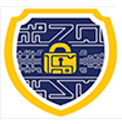The University of the Virgin Islands CECOR program provides opportunities for students from middle school to high school, undergraduates, graduates and professionals to attend cybersecurity camps, workshops and events with the support of partner institutions.
Sandia Cyber Education Training (Entering Grades 9-12)July 13 -July 17, 2020
Daily Remote/Online (minimum 6 hours/day)
Application deadline June 15th
Location: Remote/Online
For Information and Application click -> Information and Application.
Sandia National Labs will be hosting a weeklong program for students in support of the Air Force Association’s
CyberPatriot program and the MSIPP CECOR program. These trainings are designed to
help students learn about cybersecurity and gain important skills that will not only
assist them with the AFA CyberPatriot competition, but also provide a foundation in
cybersecurity knowledge. This will be completely hosted online, with daily content
posted every morning by 8:30am MDT or 10:30am AST.
Monday, July 13th- Networking and Cryptography. Jump into the basics of computer networking and the world of cryptography. This class will give students the fundamental breakdown of networking topics like the Open Systems Interconnection (OSI) model and more. Additionally, students will gain exposure to the exciting areas of cryptography, like encryption and how we use it to keep our data secure.
Tuesday, July 14th - Windows Discovery- Methods to quickly configure security policies in the Windows operating system. Learn how to explore and detect weird system behavior via sysinternals and how to create security templates in the Microsoft Management Console (MMC).
Wednesday, July 15th - Linux (introduction)- Learn the basics of the Linux operating system, from navigating via command line to configuring security policies and settings. This class will cover the basics of Linux and provide students resources to continue their Linux education.
Thursday, July 16th - Basics of Scripting- Learn the basics of automating tasks and configuring security settings with PowerShell and Python. This class will discuss the fundamentals of both scripting languages and provide students a great starting point into the world of scripting.
Friday July 17th - Competition Day (10:30am-2:00pm MDT or 12:30pm-4:00pm AST) : The final day of the camp will be an interactive capture the flag (CTF) exercise that encompasses all the topics covered throughout the week.
FAQs:
How much cybersecurity experience is required to attend the camp?
This camp expects that students have participated in the CyberPatriot competition or have some basic knowledge of cybersecurity. There will be material and lessons suitable for beginners and advanced students.
What platform will be used to deliver the training?
This event will be hosted via a Capture the Flag (CTF) interface and online virtual machines. The CTF interface and virtual machines will be available via the browser and not require any installation. A virtual machine (VM) is a software program or operating system that not only exhibits the behavior of a separate computer but is also capable of performing tasks such as running applications and programs like a separate computer.
What is the timeframe for the camp?
Each day (M-TH) will consist of three sections: a pre-recorded lesson video, a related lab exercise, and practice CTF challenges related to that day’s content. Students may work at their own pace and should be able to complete one lesson per day. These exercises will be separate from the CTF competition on the final day.
How can students participate/sign up?
Please fill-out the attached registration form (2 pages) and return it to cagarci@sandia.gov no later than Monday, June 15th. Additional details will be emailed once registration is complete.
Is there a fee to attend?
The event is entirely free for students to participate.
Equipment Requirements:
- Computer
- Internet Connection
For additional questions and information, please contact:
This program is funded with the support of a grant from the Department of Energy National Nuclear Security Administration Minority Serving Partnership Initiative, Sandia National Laboratories, Consortium for Enabling Cybersecurity Opportunity and Research and the University of the Virgin Islands.

